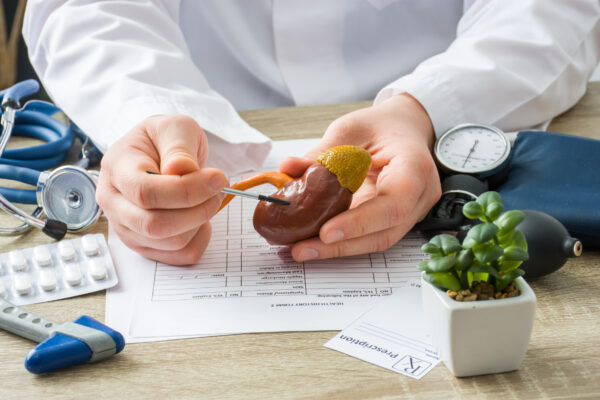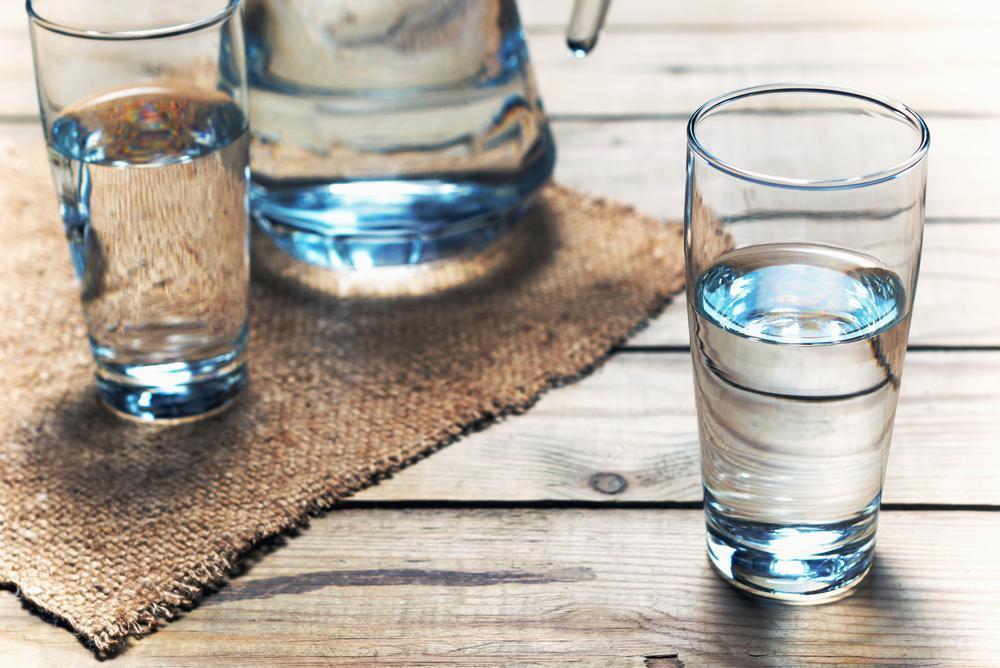Water constitutes a high proportion of human body weight and is ubiquitous in all parts of the body. It plays a crucial role in maintaining bodily functions and maintaining health. Studies have shown that drinking water (in the right way and in quantity) can impact brain cognition, weight loss, and kidney stone prevention, to name a few.
According to the Harvard TH Chan School of Public Health, water makes up about 60% of an adult’s body weight. According to a study (pdf) published in the Journal of Biological Chemistry in 1945, the water content of the main body parts of an average adult is as follows:
- Brain and heart: more than 73%
- Lungs: more than 83%
- Muscles and kidneys: more than 79%
- Bone: more than 31%
It is a well-known fact that drinking water helps restore fluids lost through metabolism, breathing, perspiration, and passing waste. However, drinking water has many other lesser-known benefits.
1. Improves Athletic Performance
A study published in the International Journal of Sports Nutrition and Exercise Metabolism in 2017 pointed out that dehydration leading to a loss of body weight of 2% or more can significantly reduce endurance performance.
In this study, researchers measured and analyzed the specific gravity of the urine before and after exercise of 430 college or club-level athletes, and assessed their weight changes during the course. The study found that in an 18-hole game of golf, players with noticeable dehydration took significantly more shots to complete a round than well-hydrated players. Athletes who started exercising well hydrated scored higher overall than those who were dehydrated.
2. Affects Brain Function
The amount of water in the body also has a big impact on the brain. A 2012 study published in The Journal of Nutrition found that after mild dehydration (an average weight loss of 1.36%) in healthy young women, their vitality, fatigue and overall mood were affected, with increased headaches and poor concentration.
Another 1988 study of young men also found that participants who were dehydrated by 2% or more of their body weight suffered from a significant decline in mental functions such as short-term memory, computational efficiency, and performance. in visual-motor tracking involving attention and concentration. .
Additionally, studies have also mentioned that dehydration can negatively impact memory and brain function in children and the elderly.

3. Potentially Improves Headaches
A randomized controlled trial published in the journal Family Practice in 2012 followed the condition of 102 patients with chronic headaches for three months. The researchers randomly divided the patients into a control group and a water drinking group. Patients in the latter group had 1.5 liters (3.2 pints) added to their daily water intake.
The results showed that there was no apparent change in the number of days patients in the water group reported with moderate headaches, but that drinking more water resulted in a significant improvement in specific quality of life. to migraine (MSQOL). More research is needed to confirm whether increasing water intake helps improve headaches. However, researchers have suggested that headache sufferers try this noninvasive intervention for a short time to see if it helps.

4. Helps Prevent Constipation
Lack of water can be one of the causes of constipation. Studies have shown that staying hydrated is an important way to prevent it.
5. Prevents Kidney Stones
A review of studies published in the journal Nutrients in 2019 showed that increased fluid intake may reduce the risk of kidney stones, and that high fluid intake may also reduce the risk of kidney stone recurrence.

6. Aids in weight loss
Drinking water can help with weight loss, and lab studies show that drinking water with meals reduces hunger and increases satiety. Middle-aged and elderly people who drink water half an hour before meals can reduce their calorie intake during meals.
In a study published in the journal Obesity (Silver Spring) in 2010, he sampled middle-aged and elderly people (BMI 25–40 kg/m²) between the ages of 55 and 75, who followed a low-calorie diet for 12 consecutive weeks. . It found that participants who drank 0.5 liters (1 pint) of water before meals lost 44% more weight after 12 weeks than the control group who drank no water before meals.

So how much water should you drink?
Although “eight glasses a day” is the most talked about topic, it may not be true for everyone, according to the Harvard School of Public Health.
The National Academy of Medicine recommends 13 and 9 cups of fluid per day for healthy men and women, respectively, where 1 cup equals 8 ounces. For people who are physically active or exposed to very hot climates, the required intake may be higher and thinner people may need less. Exact fluid needs vary from person to person and even from day to day.
True stories and experiences related to water
More than 20 years ago, New Zealander Veda Austin was involved in a car accident that left her with a broken collarbone, ribs, whiplash and internal bleeding. Half of the windshield was embedded in several parts of his body and the internal bleeding left scar tissue in his small intestine which grew over the following months, slowly severing his digestive system. Only an intravenous (IV) saline solution helped relieve his severe dehydration, nausea, and pain. After undergoing bowel surgery, Austin started adding a teaspoon of sea salt to his glass of water before breakfast every day.
In 2011, Austin established the Lemurian Wellness Clinic and began further research into the benefits of natural salt, water, and water alkalinity. She discovered that naturally alkaline water could be very beneficial, which prompted her to seek out the purest source of water possible. Eventually, she found sources of pure water in New Zealand but cannot make them public due to certain confidentiality agreements.
In an interview, Austin shared with New Zealand magazine Good that drinking water had incredible effects on her, giving her glowing skin in just three days and dramatically improving her digestive system. On the sixth and seventh day, she noticed small bumps on one of her arms and her jaw, which were painful to the touch. So she started adding a specific percentage of dissolved Himalayan salt for every liter of water. On day 10, she discovered that 27 small shards of glass that had been in her body for 20 years had been expelled from her skin.
Austin also mentioned that his water research was deeply influenced by Japanese scientist Masaru Emoto.
Emoto has been taking photos of water crystals since 1994. He compiled all of these water crystal photos into a publication called “The Hidden Messages in Water”, which has been translated into more than a dozen languages.
In his research experiment, Emoto wrapped the paper with written words around the water bottle and observed the changes in water crystallization. Research results show that when water “sees” graceful words such as “kindness”, “gratitude” and “praise”, the water crystals will produce beautiful patterns. On the contrary, with negative words such as “hate”, “complaint” and “pain”, the water crystals will take on duller and less attractive forms.
Emoto did many other experiments to show that water is a kind of message carrier, and can respond to messages conveyed by language, music, and text, and exhibit different states of crystallization accordingly.

